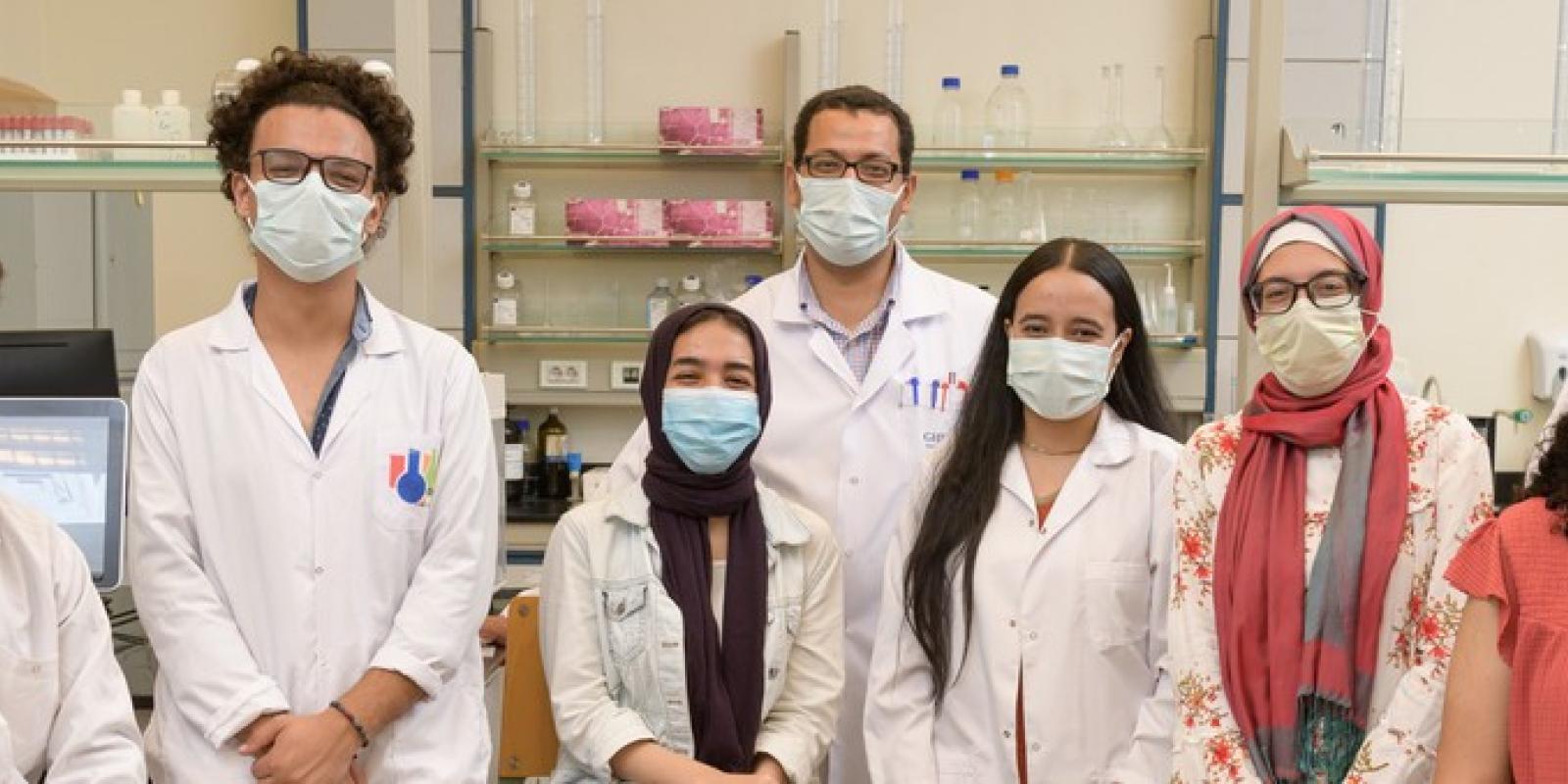
AUC Students Win a Silver Medal at the 2020 International Genetically Engineered Machine Competition
A team of undergraduate students at The American University in Cairo (AUC) has developed a groundbreaking approach for treating COVID-19 patients, earning them a silver medal at the 2020 International Genetically Engineered Machine (iGEM) competition. Biology majors Rana Salah, Salma Abou Elhassan and Ahmed Magdy ’20 led a multidisciplinary team of 13 AUC students with backgrounds in biology, business, actuarial science, engineering, chemistry and mass communication to pioneer a theoretical model that promises to spur more innovation in the field of biology, should their research be continued in a lab setting. Unlike the approach of a vaccine, the team’s research revolves around a therapeutic model for the treatment of COVID-19 patients that would work to eliminate the virus by preventing it from replicating itself within the human body.
Apart from earning recognition for their innovative approach to COVID-19 treatment, the students also distinguished themselves in iGEM as one of two teams from Egypt and one of three teams from Africa participating in the competition. “This is a worldwide competition that has no restrictions on the number of participants from any country,” said Anwar Abdelnaser, assistant professor at AUC’s Institute of Global Health and Human Ecology and the team’s research supervisor. “Winning the silver medal in the team’s first participation is a testament to the quality of teaching and research at AUC. In addition, this recognition promotes AUC as a global academic institution that was able to participate and win in a worldwide competition while operating under pandemic conditions.”
Began in January 2003 as an independent study course at the Massachusetts Institute of Technology (MIT), the iGEM Competition gives students the opportunity to push the boundaries of synthetic biology by tackling everyday issues facing the world. It is made up of primarily university students, multidisciplinary teams work together to design, build, test, and measure a system of their own design using interchangeable biological parts and standard molecular biology techniques.
AUC team’s model works on designing a synthetic biology virus-like particle that mimics the SARS-COV2 virus and binds to the cell instead of the virus. When this particle binds to the cell, it releases a biological tool named toehold switch that acts as a sensor that targets the SARS-COV-2 RNA. Applied in the form of a diagnostic tool, the team’s model could also be used beyond a therapeutic purpose to reshape the way we currently test individuals for COVID-19.
One of the main challenges the team faced in developing their research was determining how to safely deliver the toehold switch they developed into patients. “We worked first on developing virus-like particles, or decoy COVID-19 virus particles, that mimic the virus in order to reach only the cells that are targeted by the virus itself,” Salah explained.
The team’s research applies methodologies and knowledge from synthetic biology, a growing interdisciplinary field of science and engineering with potential for combating health challenges. “It’s actually a kind of science that integrates everything,” Salah noted. “It is at the core of the sciences, combining biology, chemistry, computer science and machine learning. A lot goes into this phenomenal new area. It can solve many problems, such as cancer and other diseases.
Through their outreach efforts, the team was even able to raise public awareness of the seriousness of the COVID-19 pandemic and the steps people can take to protect themselves and others.
“We went to an orphanage to talk to kids who didn’t know anything about biology,” Salah said. “We used games and art contests, and that made them more willing to take precautions. Now they understand what we are facing, and they also understand that they still have the opportunity to work in biology. We also talked to high school students from STEM (science, technology, engineering and mathematics) schools. We developed workshops about biosafety and biosecurity in the form of a crisis simulation. So, we focused on the measures people need to take if there is a certain crisis to be solved through synthetic biology.”
In the future, the team is hopeful that they can conduct lab work that would allow them to refine their model for application in the real world. “We hope that our model will make its way to the appropriate pharmaceutical company,” said Magdy. “This will enable us to conduct further research and go through the clinical testing process, which will make this possible treatment affordable and accessible to many people. Yes, we are trying to save the world, and we will achieve our goal.”